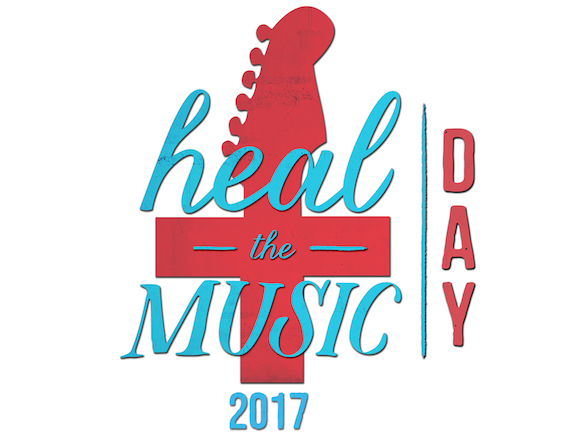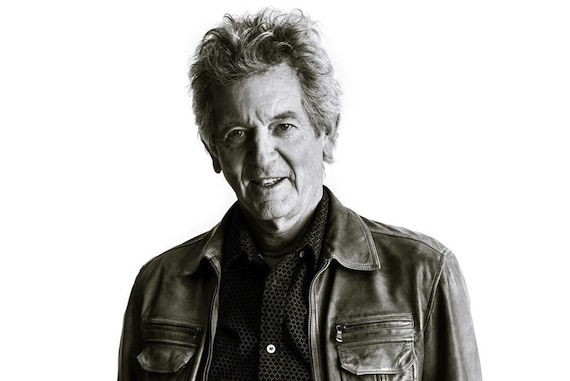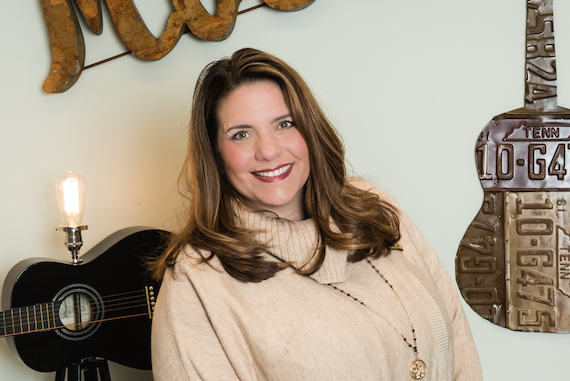
 Grammy winner Rodney Crowell was in the middle of a music video shoot during a busy Friday evening on Nashville’s lower Broadway, when he was struck by the sheer number of fellow musicians he saw performing at the street’s numerous clubs and bars.
Grammy winner Rodney Crowell was in the middle of a music video shoot during a busy Friday evening on Nashville’s lower Broadway, when he was struck by the sheer number of fellow musicians he saw performing at the street’s numerous clubs and bars.
“I took a guess that there must be 150 musicians working on Broadway that night,” Crowell told MusicRow.
At last estimate, some 56,000 Nashvillians work in the city’s music industry, as producers, songwriters, recording artists, musicians, publishers, and more.
Seventy five percent, or approximately 42,500 of those people, are self-employed or part of a small business, without access to group medical health benefits. Many of the self-employed and small business owners struggle to provide health care insurance for their employees.
After that shoot, Crowell, a board member and advocate for nonprofit organization Music Health Alliance, teamed with MHA to hatch a plan to help his fellow musicians.
“I thought these are the musicians that might go to Music Health Alliance for the help they need with health insurance,” Crowell says. “I was also aware that a lot of people don’t know what MHA is and what it does. So I thought two things—we could raise awareness and we could also raise funding.”
Rather than go the usual route of a benefit concert, they have announced Heal The Music Day on Oct. 20. Proclaimed by Nashville mayor Megan Barry as such, Heal The Music Day will offer Nashville’s musicians and music companies the chance to support their own.
Musicians can donate five percent of that day’s show earnings to nonprofit organization Music Health Alliance, to help support the nonprofit organization. Crowell says he has been working with other music companies on creating alternative structures that allow them to participate in that day’s giving.
Crowell’s first call was to Keith Urban, who immediately agreed. From there, the list has only grown, with supporters including Chris and Morgane Stapleton, Dierks Bentley, Earls of Leicester, Emmylou Harris, Gary Allan, Gene Watson, Glen Templeton, Jerry Douglas, John Prine, Lee Brice, Marty Stuart, Mary Gauthier, Miranda Lambert, Peter Frampton, Rachael Hester, Rodney Crowell, Ronnie Dunn, Rosanne Cash, Sam Bush, Shawn Camp, T Bone Burnett, Vince Gill, Dualtone Records, Nashville Musicians Union, Nashville Songwriters Association International (NSAI), New Frontier Touring, Warner Chappell Music and Wiatr & Associates.

Rodney Crowell. Credit: Gregg Roth
“Usually with the overhead costs of putting on a concert, you are lucky if you are making 17 percent,” Crowell says. “With this, they don’t have to do anything that they aren’t already doing. We are working on some other formulas for publishers and others to contribute. But it was easy for me to sell to touring artists.”
Since its founding four years ago, Music Health Alliance has helped more than 5,600 music industry professionals solve medical coverage needs, and saved $16.5 million in healthcare resources. MHA has also become the clearinghouse for “all things medical” for MusiCares, the Gospel Music Trust Fund, ACM Lifting Lives and the Opry Trust Fund.
The organization’s services are free and available to anyone who has worked in the music industry for two or more years, or who has credited contributions to four commercially-released recordings or videos. Spouses, partners, and children of qualifying individuals may also receive access to MHA services.
Those services include assistance for those with healthcare difficulties including having no health insurance (individual or group coverage), newly diagnosed illnesses, those who cannot afford medication or have high medical bills, need help understanding health insurance policies, senior health concerns, Medicare preparation, those with a special needs family member and more.

Tatum Allsep. Credit: Ashley Hylbert
“I wish there wasn’t a need for such advocacy in our industry, because we believe healthcare is a human right, not just a privilege,” Music Health Alliance founder and Executive Director Tatum Allsep tells MusicRow. “Unfortunately, that’s not the way our system is structured,” says Allsep.
The need is only getting bigger.
According to the New York Times, the congressional budget office declared that the bill to dismantle the Affordable Care Act would leave 14 million more people uninsured next year than under the ACA, and 23 million more by 2026.
Allsep hopes instead to see changes made to the ACA to fix the portions causing hardship for many Americans, including those in the music industry.
“Music Health Alliance stays very apolitical,” Allsep stresses. “The Affordable Care Act is an immense blessing for so many people in the music industry so to completely repeal it would really hurt our industry. What we are really hoping is that they will reform the pieces that are not working, like high premiums for those that make 400 percent above the federal poverty level. For a family of four, that’s about $93,000. Paying $2,800 a month for insurance, that’s not affordable for anybody.”
Crowell knows well the struggle for small business owners who cannot provide health insurance to their employees. Crowell is one of them.
“I’m a touring artist, but I can’t afford to provide health insurance for the people who travel with me,” he says. “They go to Music Health Alliance. I would say three out of four touring artists couldn’t afford to provide healthcare for their employees.
“It’s a large workforce that needs help, and anyone that has been working in the industry for two years can walk through Music Health Alliance’s doors and they will help them find the insurance they need. They are constantly researching and they know where the government and state funding and medical funding is to help people take on enormous medical-related debt.”
Crowell first became acquainted with the work of Music Health Alliance while involved with a charity fundraiser with Vince Gill. When he learned of the work Music Health Alliance was doing for the music industry, he called Allsep directly.
“I said, ‘We are going to send over a check,’ and she was so appreciative. She said, ‘That’s going to cover our expenses for next month.’ I thought, ‘Wow, it is running really close to the edge, getting this off the ground.’ That’s why I wanted to do more for them.”
Nashville mayor Megan Barry who proclaimed the concert day as Heal The Music Day has joined the effort.
“It is my great pleasure to proclaim October 20th as Heal The Music Day in recognition of Music Health Alliance’s work to connect some of the 56,000 Nashvillians in the music industry with doctors, medicine, health insurance and financial assistance during times of illness,” said Nashville Mayor Megan Barry. “So many of our artists, entertainers, songwriters, musicians, and crew are self-employed and go without access to high-quality health insurance. Heal The Music Day is about giving back and showing we care about those who put the music in Music City.”
“Fame doesn’t equal fortune in our city at all,” Allsep sums. “It’s only a small percent of people that reach that level and most of the time, it’s not lasting. This work can help build an endowment that ensures that we are always able to provide to those in this industry that are in need.”

About the Author
Jessica Nicholson serves as the Managing Editor for MusicRow magazine. Her previous music journalism experience includes work with Country Weekly magazine and Contemporary Christian Music (CCM) magazine. She holds a BBA degree in Music Business and Marketing from Belmont University. She welcomes your feedback at jnicholson@musicrow.com.View Author Profile


